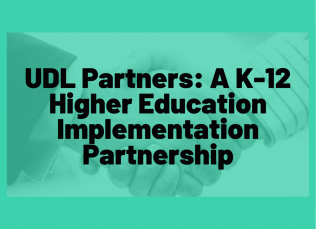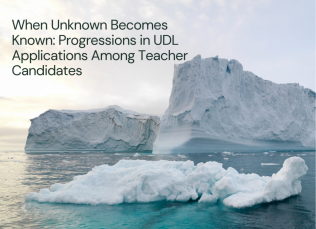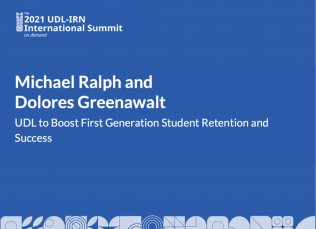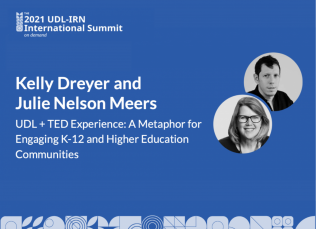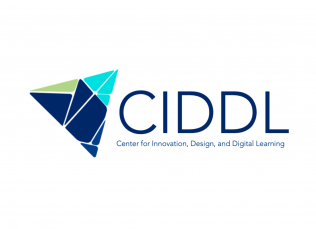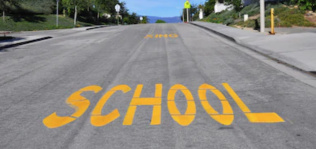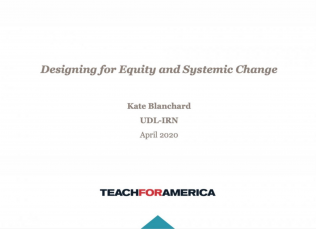
Designing for Equity and Systemic Change
Join us to for a conversation and learn more about how Teach For America has worked to embed learner variability, UDL, and our ability to dismantle ableism as it intersects with other forms of oppression in throughout our model – our teacher training, ongoing teacher support, structures for adult learners, and more.
How do we utilize UDL as a tool for systemic change – and in a way that deliberately addresses equity for all learners? Join us to for a conversation and learn more about how Teach For America has worked to embed learner variability, UDL, and our ability to dismantle ableism as it intersects with other forms of oppression in throughout our model – our teacher training, ongoing teacher support, structures for adult learners, and more. We’ll spotlight some key moments that have led to this change and what we’re planning to do next.
Session Video Recording
Slide Deck
Reflection and Planning Sheet
Share this resource:
Posted date:
January 31, 2022

